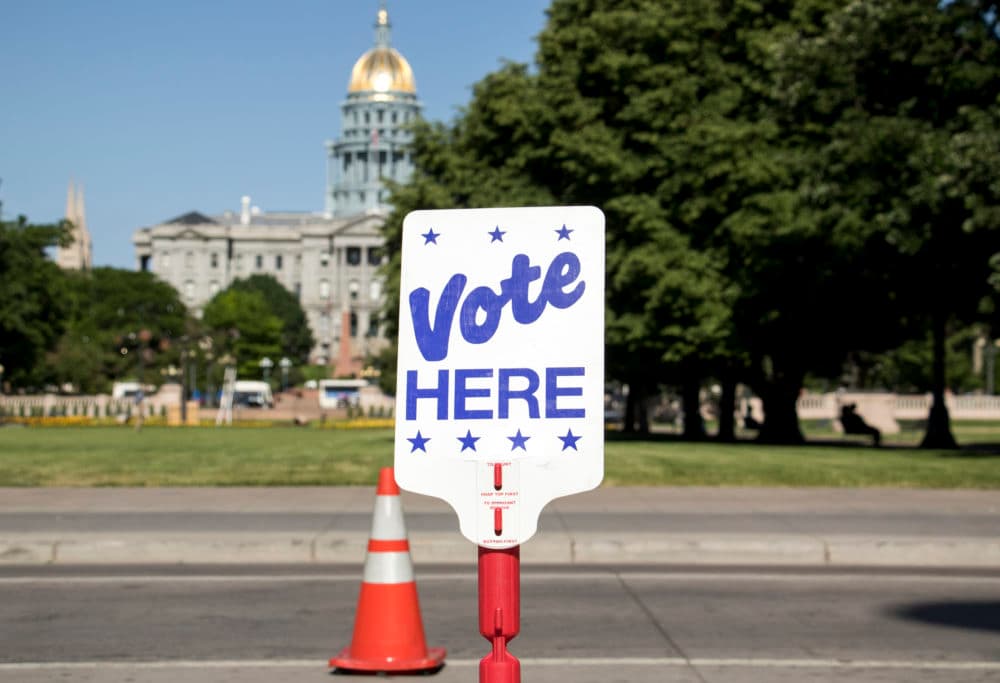If someone campaigns to change Denver's laws through a ballot initiative in 2019, they might have a harder time.
A ballot initiative, as you probably know, is one of the reasons that strangers approach you in the street. If a group gets enough signatures, they can place a proposal on the city's election ballots.
In November, Denver voters will decide whether to change the required number of signatures for these ballot initiatives. In some years, the new rules will make things tougher for campaigners, but in other years it will be easier.
The Denver City Council voted on Monday to let voters decide the matter -- and the debate gets at some of the core questions of running a democracy in a ballot-happy state.
The change wouldn't be a straightforward increase or decrease.
Instead, the math would change. (Please don't leave.) Right now, the required number of signatures is 5 percent of the total number of votes in the last election for mayor. Under the proposal, that would change to 2 percent of the city's number of active registered voters.
The current system is pretty variable, since it depends on how many people cared about the most recent mayoral election. As a result, the requirement has swung up and down between about 4,000 and 6,000 signatures since 2003.
The new proposal would "stabilize" that number, according to Councilman Kevin Flynn. If you were to go back in time and implemented the rules in previous years, it would have raised the requirement in some years and lowered it in others.
"It normalizes those numbers, it normalizes the atmosphere," said Councilman Paul López. "It's good government. It’s responsible government."
For example, the contested mayor's race in 2011 created a requirement of about 6,100 signatures. The proposed new rule would have required only 5,500.
However, the proposal would raise the requirement for the upcoming 2019 municipal election -- from about 5,000 signatures to more than 8,000 signatures. That's because Denver's population is booming, while the most recent mayor's race was relatively quiet.
With the change, Flynn said, campaigners wouldn't "have to worry, 'Is there a competitive mayor’s race?'"
But Councilwoman At-large Debbie Ortega asked whether the change was necessary. "Our process takes care of itself," she said. "People find out how many signatures are going to be required."
The council voted 12-1 to put the question on November ballots, with Ortega dissenting.
Some council members wanted to go further.
López wanted a higher requirement -- 2.5 percent of registered voters, which would have represented an increase for all recent elections.
"Some of the feedback we got was this is just creating another barrier for democracy. It’s really not," he said. Other cities have higher requirements, he said, like San Diego's 10 percent of registered voters.
And he said that the ballot process could be used for harmful causes. He pointed to the "impound law," an ordinance approved by voters in 2008 that required the police department to impound cars, which was designed in part to target undocumented immigrants.
"It normalized a racist practice," said López, who successfully led the council to repeal the impound law in 2011.
"I don’t want to block anybody from being able to do this. I cut my teeth on this work. But as our city grows, we have to make sure that we have a responsible line."
His push for a higher requirement was rejected in a 7-6 vote. Council members Kendra Black, Albus Brooks, Stacie Gilmore, Chris Herndon and Mary Beth Susman also supported López's failed amendment.
What else is on the ballot?
As of today, eight local ballot initiatives have had their titles approved for petitioning for this November's ballots in Denver. Only two have enough signatures so far to make the ballot: the Democracy for the People Initiative and the Denver College Affordability Fund Initiative.
The Democracy for the People measure would require the disclosure of independent spending in elections; ban corporations, labor unions and other groups from contributing directly to campaigns; lower contribution limits; and create a fund of public money for candidates who agree to raise lower amounts of money.
The college fund initiative would raise the sales and use tax by 0.08 percent -- about a penny on a $10 purchase -- to fund college and technical scholarships for Denver residents.
The council also has placed two items on the ballot: a sales tax for parks and the ballot initiative rule change.
Updated with more information on the current ballot measures.














